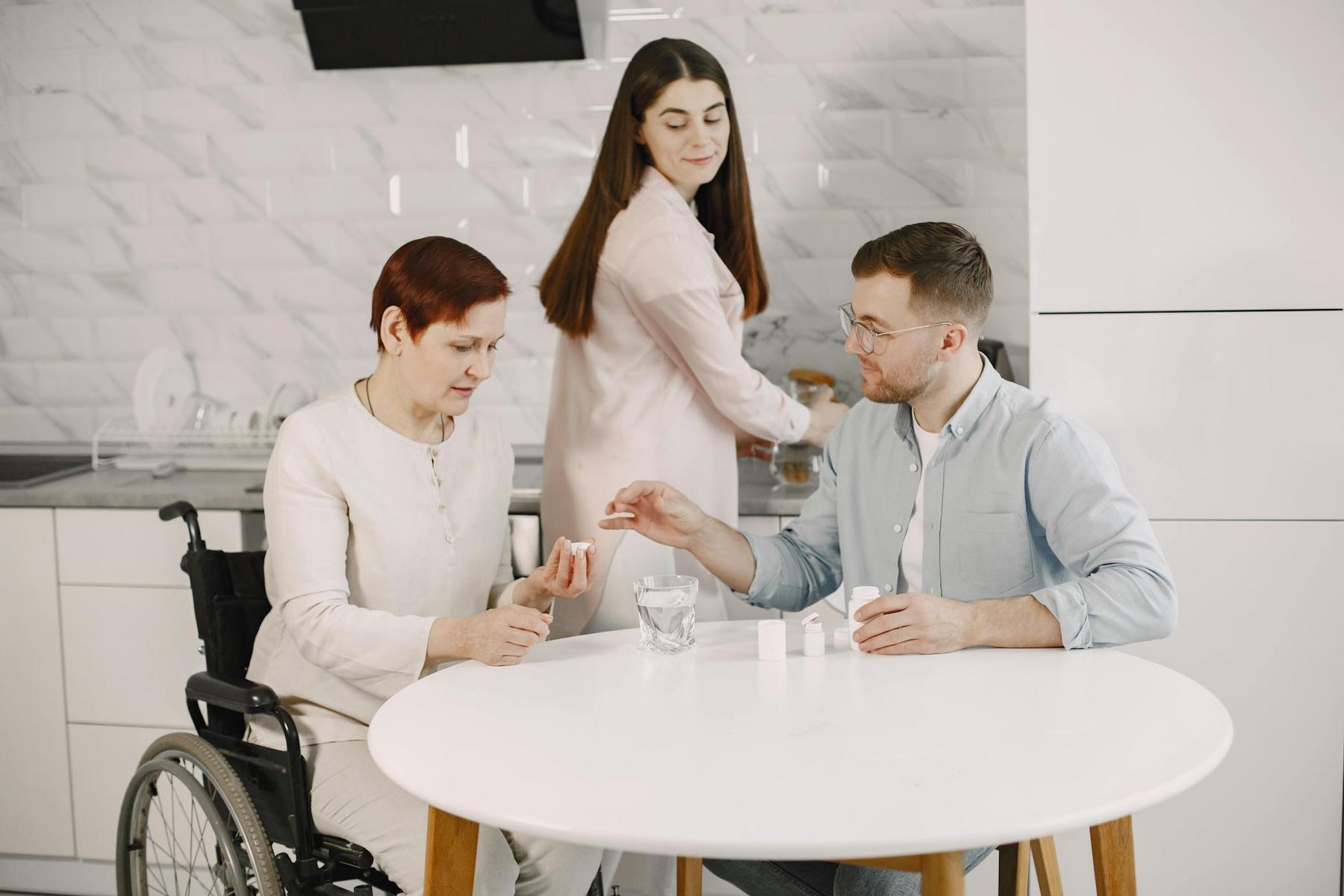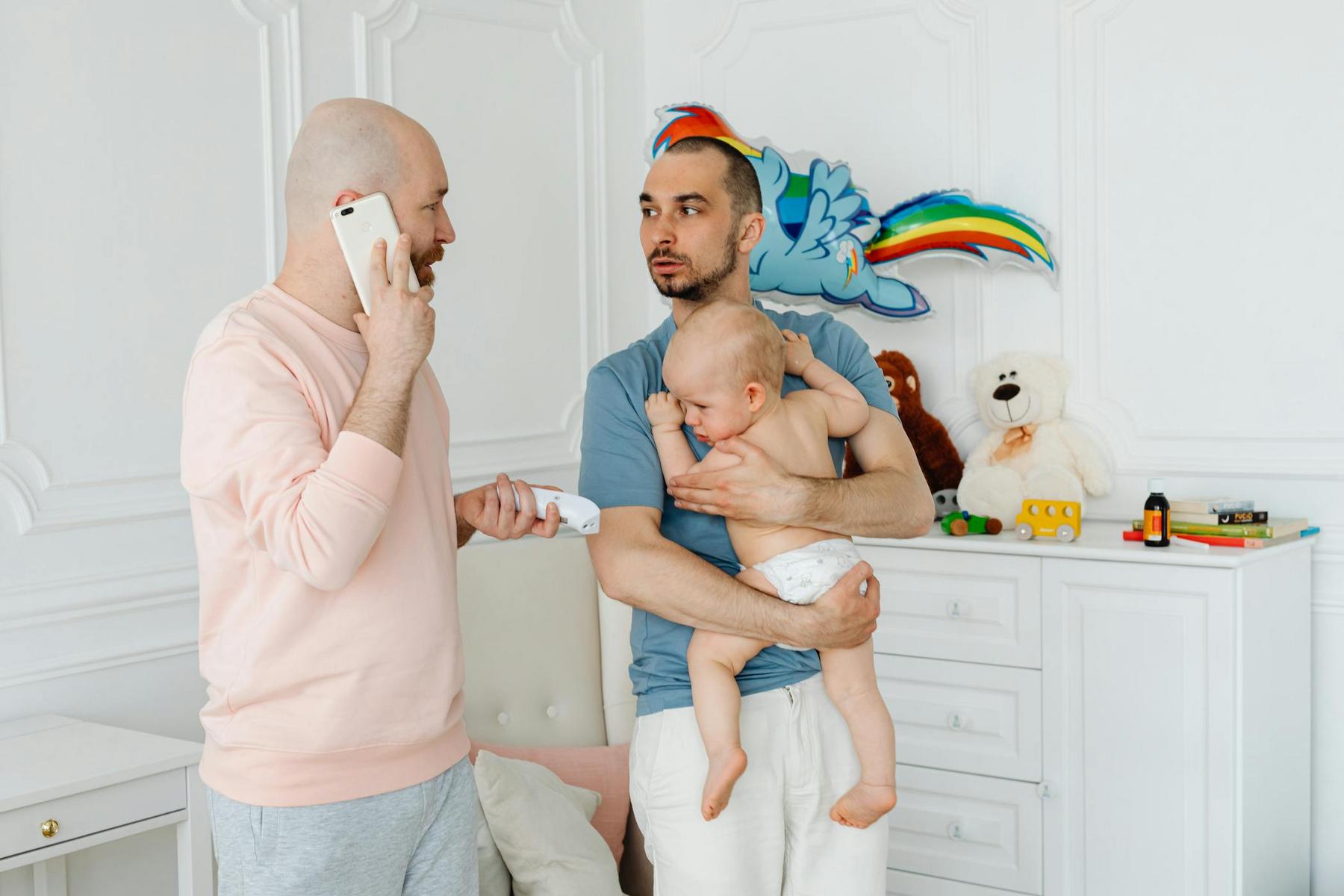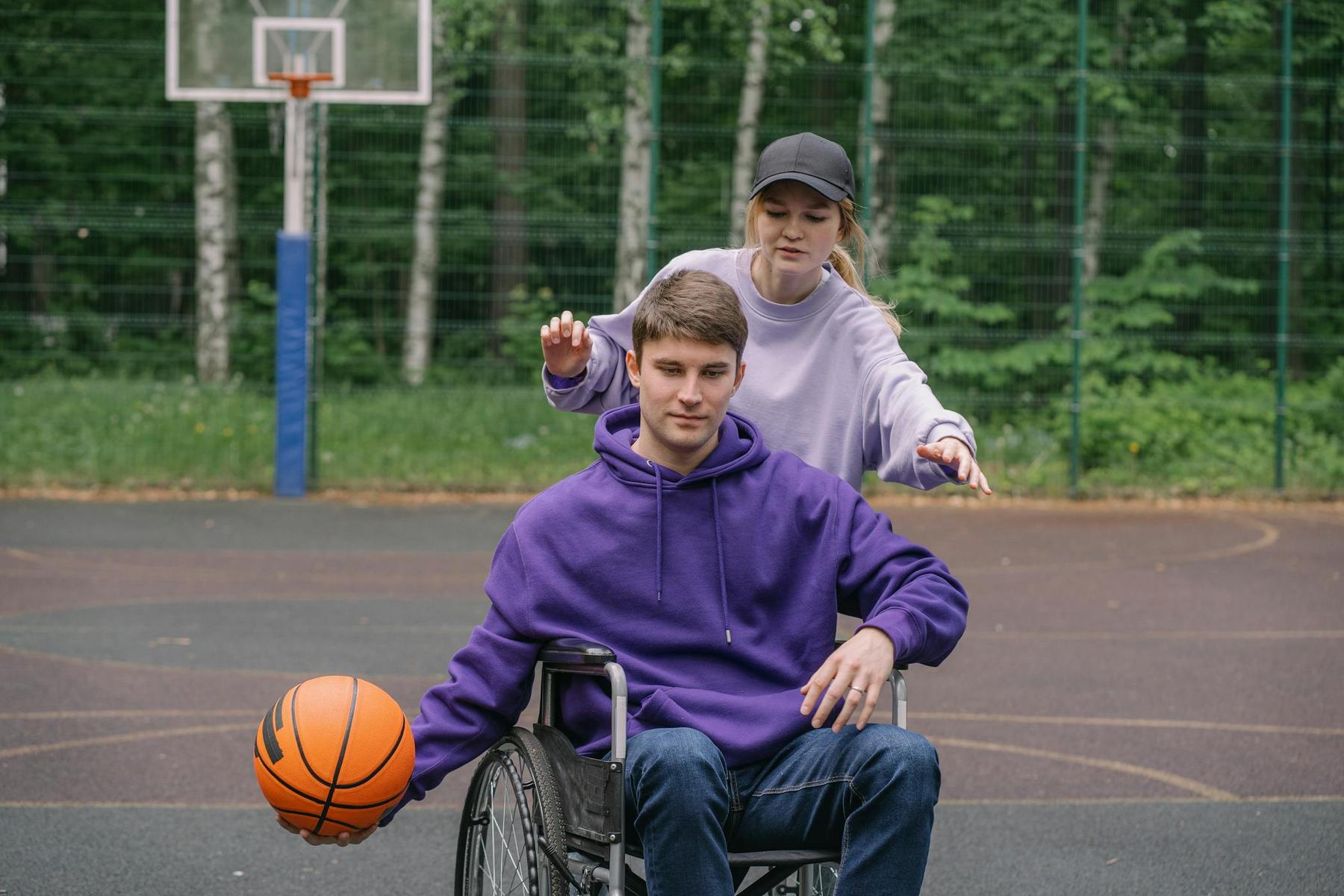When Mrs Chen’s son needed disability support services, she faced a challenge that many families in Brisbane’s multicultural communities know all too well. Finding a care provider who not only understood his physical needs but also respected his cultural background, dietary requirements, and language preferences felt like searching for something that didn’t exist. The reality is that Brisbane’s suburbs are home to vibrant communities from across the globe, yet culturally appropriate disability care remains frustratingly difficult to access for many families.
In suburbs like Sunnybank, Inala, and other diverse areas across Brisbane, families speak dozens of languages at home, celebrate different cultural traditions, and have unique expectations around care and support. When disability services don’t align with these cultural values, individuals and their families often feel isolated, misunderstood, and inadequately supported. The gap between what’s needed and what’s available isn’t just inconvenient—it can directly impact the quality of care, health outcomes, and overall wellbeing of people living with disabilities.
Understanding what culturally appropriate disability care truly means, where to find it in Brisbane’s diverse suburbs, and how to ensure services meet your family’s unique needs is essential for accessing support that respects your identity whilst providing exceptional care.
What Does Culturally Appropriate Disability Care Actually Mean?
Culturally appropriate disability care extends far beyond simply having staff who speak multiple languages. It represents a comprehensive approach where care providers genuinely understand and respect the cultural beliefs, practices, values, and traditions that shape how individuals and families experience disability and receive support.
At its core, cultural competence in disability services means recognising that people from different backgrounds may have varying perspectives on disability itself, different communication styles, distinct family structures, and specific requirements around modesty, diet, religious observance, and daily routines. For some families, disability care decisions involve extended family members and community elders. For others, gender-specific care preferences or prayer times must be accommodated without question.
Truly culturally appropriate care integrates these considerations into every aspect of service delivery, from initial assessments and care planning through to the smallest details of daily support. This means care providers must move beyond token gestures towards embedding cultural safety into their organisational values, staff training, and operational practices. When done properly, culturally competent care doesn’t just accommodate difference—it celebrates it as an essential part of each person’s identity and wellbeing.
The distinction between cultural awareness and cultural competence matters significantly. Awareness means knowing that differences exist, whilst competence means having the skills, knowledge, and organisational structures to respond effectively to those differences. Families deserve providers who demonstrate the latter.
Why Is Cultural Alignment Critical for Disability Support Quality?
The connection between cultural alignment and support quality isn’t merely about comfort—it fundamentally affects health outcomes, service engagement, and quality of life. When individuals with disabilities receive care that conflicts with their cultural values, research consistently shows reduced engagement with services, poorer communication between care recipients and providers, and decreased satisfaction with support.
Consider the practical implications: a Muslim individual requiring personal care assistance may feel uncomfortable with opposite-gender support workers, regardless of their qualifications. A person from a collectivist culture may struggle with disability support models that emphasise individual independence over family interdependence. Someone from a First Nations background might need care providers who understand the significance of connection to Country, community, and cultural practices.
Cultural misalignment in disability care creates invisible barriers that prevent people from accessing the full benefits of their NDIS funding and support services. These barriers manifest in missed appointments, reluctance to discuss genuine needs, family stress, and ultimately, poorer outcomes for the individual receiving care. When families feel their cultural identity must be compromised to access disability support, it creates an impossible choice between essential services and cultural integrity.
The impact extends to families and carers as well. When disability support workers understand and respect cultural protocols around family involvement, dietary requirements, and communication styles, families experience less stress and can focus on supporting their loved ones rather than constantly advocating for basic cultural accommodations. This alignment transforms disability care from a source of tension into genuine partnership.
Moreover, culturally appropriate care acknowledges that concepts of disability, independence, and care vary across cultures. Some communities view disability through a social or spiritual lens rather than purely a medical model. Respecting these perspectives whilst providing evidence-based support requires skill, flexibility, and genuine cultural humility from providers.
Which Brisbane Suburbs Have the Most Diverse Communities Seeking Disability Services?
Brisbane’s cultural diversity is concentrated in specific suburban areas, each with distinct community profiles and cultural support needs. Understanding where diverse communities live helps families find providers who already have experience serving their cultural group and may have bilingual staff or established community connections.
| Suburb | Key Cultural Communities | Cultural Considerations for Disability Care |
|---|---|---|
| Sunnybank | Chinese, Vietnamese, Korean, Japanese | Language services in Mandarin/Cantonese/Vietnamese, understanding of filial piety and family-centred care models, dietary requirements including vegetarian options |
| Inala | Vietnamese, Sudanese, Somali | Multilingual communication support, understanding of collectivist family structures, halal meal requirements, trauma-informed care for refugee communities |
| Moorooka | Indian, Pakistani, Nepalese | Hindu and Muslim cultural practices, vegetarian and halal dietary needs, gender-specific care preferences, understanding of joint family systems |
| Darra | Indian, Filipino, Pacific Islander | Diverse religious practices, extended family involvement in care, specific dietary and modesty requirements |
| Woodridge | Aboriginal and Torres Strait Islander, Samoan, Tongan | Connection to community and culture, understanding of collectivist care approaches, culturally safe spaces |
These suburbs represent just a snapshot of Brisbane’s multicultural landscape, but they highlight the concentration of diverse communities requiring culturally responsive disability services. Each area has unique characteristics, with some suburbs home to established communities spanning several generations, whilst others support more recent arrivals including refugees who may have additional trauma-informed care needs.
The presence of cultural community organisations, religious centres, and ethnic businesses in these areas indicates where families feel culturally connected. Finding disability care providers who actively engage with these communities and understand local cultural dynamics significantly improves the likelihood of receiving genuinely appropriate support.
Beyond these specific suburbs, Brisbane’s diversity extends across the metropolitan area, with growing multicultural populations in areas including Logan, Stretton, and newer developments where families from diverse backgrounds increasingly settle.
How Can Families Identify Truly Culturally Competent Disability Providers?
Identifying disability providers who genuinely understand and can meet your cultural needs requires asking specific questions and looking beyond surface-level claims about cultural competence. Many organisations mention cultural awareness in their marketing materials, but true cultural competence is evident in operational practices, staff composition, and established community relationships.
Assess Their Cultural Understanding and Training
Start by asking potential providers about their approach to cultural competence. Inquire about staff training programmes, whether they employ workers from your cultural background, and how they ensure ongoing cultural education. Providers with genuine cultural competence will have structured training programmes, not just ad-hoc cultural awareness sessions. They should demonstrate understanding of specific cultural practices relevant to your community.
Evaluate Language Support and Communication
Language access extends beyond having bilingual staff. Ask whether providers offer professional interpreter services, have translated materials about their services, and can conduct assessments and care planning in your preferred language. Effective communication in disability care isn’t just about vocabulary—it’s about understanding cultural communication styles, non-verbal cues, and appropriate ways to discuss sensitive topics within your cultural context.
Review Their Cultural Matching Capabilities
Enquire about whether providers can match you with support workers who share your cultural background or have significant experience working within your community. Ask about their processes for accommodating cultural preferences around gender, age, and other relevant factors. Providers who regularly serve diverse communities should have established systems for these matches rather than treating them as special requests.
Examine Their Understanding of Cultural Protocols
Cultural competence appears in details: understanding appropriate greetings, respecting shoes-off policies, recognising religious observance times, knowing dietary requirements without needing constant reminders, and demonstrating awareness of family decision-making structures. Ask providers how they accommodate these practical considerations and whether support workers receive guidance on cultural protocols specific to your background.
Investigate Community Connections
Providers who are genuinely engaged with cultural communities often have established relationships with cultural organisations, religious centres, and community leaders. Ask whether they partner with cultural community organisations, participate in multicultural events, or have endorsements from community groups. These connections indicate commitment beyond compliance to genuine cultural engagement.
Verify NDIS Cultural Responsiveness
Under the NDIS, you have the right to culturally appropriate services. Ask providers how they ensure cultural safety in their service delivery, how they handle cultural complaints or concerns, and whether they have specific policies around cultural competence. Providers should be able to articulate clear processes rather than vague commitments.
What Specific Cultural Accommodations Should Quality Providers Offer?
The range of cultural accommodations required varies significantly depending on individual backgrounds, but certain elements represent baseline expectations for culturally competent disability care in Brisbane’s diverse suburbs.
Dietary and Meal Support
For individuals requiring meal preparation or support with eating, cultural dietary requirements are non-negotiable. This includes halal food preparation for Muslim participants, vegetarian or specific dietary practices for Hindu participants, and understanding of food customs and preferences across different cultures. Quality providers should have staff trained in culturally appropriate food handling and preparation, not just awareness that differences exist.
Religious Observance and Spiritual Practices
Respecting prayer times, facilitating religious observance, and understanding spiritual practices forms an essential component of culturally appropriate care. This might mean scheduling support around prayer times, ensuring participants can access religious centres, or supporting participation in cultural and religious festivals. For First Nations Australians, connection to Country, cultural practices, and community may be central to wellbeing and should be integrated into support plans.
Modesty and Gender Preferences
Many cultures have specific expectations around modesty and gender interactions, particularly for personal care. Quality providers should accommodate preferences for same-gender support workers without question and understand appropriate boundaries around physical contact and personal space that vary across cultures.
Family Involvement and Decision-Making
Cultural competence requires understanding different family structures and decision-making processes. Some cultures prioritise family consensus in care decisions, involve extended family members, or have specific family hierarchies that providers must respect. Disability support that alienates families or fails to recognise their central role in care delivery fundamentally misunderstands cultural support needs.
Communication Styles and Conflict Resolution
Different cultures have varying communication norms around directness, expressing concerns, and handling disagreements. Culturally competent providers recognise these differences and adapt their communication approaches accordingly, rather than expecting families to conform to mainstream Australian communication styles.
Cultural Events and Community Participation
Supporting participation in cultural festivals, community gatherings, and maintaining cultural connections contributes significantly to wellbeing. Providers should actively facilitate these connections rather than viewing them as optional extras to standard disability support.
Navigating the NDIS System Whilst Maintaining Cultural Identity
The NDIS framework technically supports culturally appropriate care through its emphasis on choice and control, yet navigating the system to achieve genuinely cultural support can prove challenging for many families from diverse backgrounds. Understanding how to advocate for your cultural needs within the NDIS structure empowers families to access services that truly align with their values.
When developing your NDIS plan, explicitly state your cultural requirements and explain why they’re essential to your wellbeing, not merely preferences. The distinction matters within NDIS assessment processes. Frame cultural supports as necessary for achieving your goals and participating in your community, which aligns with NDIS objectives around social and economic participation.
Document your cultural support needs in detail, including language requirements, dietary needs, religious observance, family involvement preferences, and any other cultural considerations. The more specific your plan, the easier it becomes to find providers equipped to meet those needs and to hold providers accountable for delivering culturally appropriate services.
The NDIS provides funding for interpreter services, and these should be utilised not just for plan meetings but throughout your service delivery if needed. Don’t compromise on communication quality because of concerns about costs—effective communication is fundamental to safe, appropriate care.
When providers claim they can’t accommodate your cultural needs, understand that choice and control within the NDIS means you can seek alternative providers. Brisbane’s diverse disability service landscape includes providers with specific cultural expertise, and accessing them is your right under the scheme.
Consider engaging a culturally matched support coordinator or plan manager who understands both the NDIS system and your cultural context. These professionals can help navigate the system whilst ensuring your cultural needs remain central to service delivery decisions.
Making Your Cultural Needs Central to Care Planning
Brisbane’s rich cultural diversity should be reflected in the disability services available across its suburbs. Finding culturally appropriate disability care isn’t about compromising between quality support and cultural identity—it’s about recognising that truly quality support must be culturally appropriate to be effective.
As Brisbane’s multicultural communities continue to grow and evolve, the disability sector must move beyond token gestures towards genuine cultural competence embedded in organisational practices, staff training, and service delivery. Families deserve providers who view cultural responsiveness not as an added extra but as fundamental to quality care.
The journey towards culturally appropriate disability care begins with understanding your rights, clearly articulating your needs, and seeking providers who demonstrate genuine cultural competence through their actions, not just their marketing. When families demand culturally appropriate services and providers rise to meet those expectations, Brisbane’s disability sector becomes more inclusive, effective, and genuinely supportive of all community members.
Your cultural identity isn’t something to be managed around your disability support—it’s an integral part of who you are and must be respected and celebrated within your care arrangements. Quality disability providers in Brisbane understand this fundamental truth and build their services accordingly.
How do I find disability support workers who speak my language in Brisbane?
Brisbane has disability support workers speaking numerous languages, including Mandarin, Cantonese, Vietnamese, Arabic, Hindi, Spanish, and many others. When approaching providers, explicitly request bilingual support workers as part of your cultural needs. Additionally, professional interpreter services, which are NDIS-funded, should be utilised for important communications, assessments, and care planning meetings to ensure clarity and understanding.
Can I request same-gender care support for cultural or religious reasons?
Absolutely. The NDIS supports choice and control, including the right to request same-gender support workers if this aligns with your cultural or religious values. Quality providers should accommodate these preferences without requiring you to justify or defend your cultural practices. If a provider cannot meet this requirement, you have the right to find an alternate provider who can.
What should I do if my disability provider doesn’t respect my cultural practices?
First, clearly communicate your cultural requirements and explain their importance to your wellbeing. If issues persist, raise formal concerns using the provider’s complaints process. You also have the right to change providers if your cultural needs continue to be unmet. The NDIS Quality and Safeguards Commission is available to handle complaints about providers who fail to deliver culturally safe services.
Are there disability services specifically for First Nations people in Brisbane?
Yes, Brisbane has disability service providers with specific expertise in supporting Aboriginal and Torres Strait Islander people. These providers offer culturally safe care that recognises the importance of connection to Country, community, and culture. They typically employ Indigenous staff and integrate cultural protocols into their service delivery. Inquire about a provider’s Indigenous engagement and cultural safety practices to identify the right service for you.
How can I ensure my dietary requirements are properly met by disability support workers?
Document your dietary requirements in detail during care planning, including any religious requirements (such as halal or kosher), vegetarian or vegan practices, and specific cultural food preferences. Ensure that the support workers are trained in culturally appropriate food handling and that the provider has robust systems in place to consistently meet your dietary needs.



